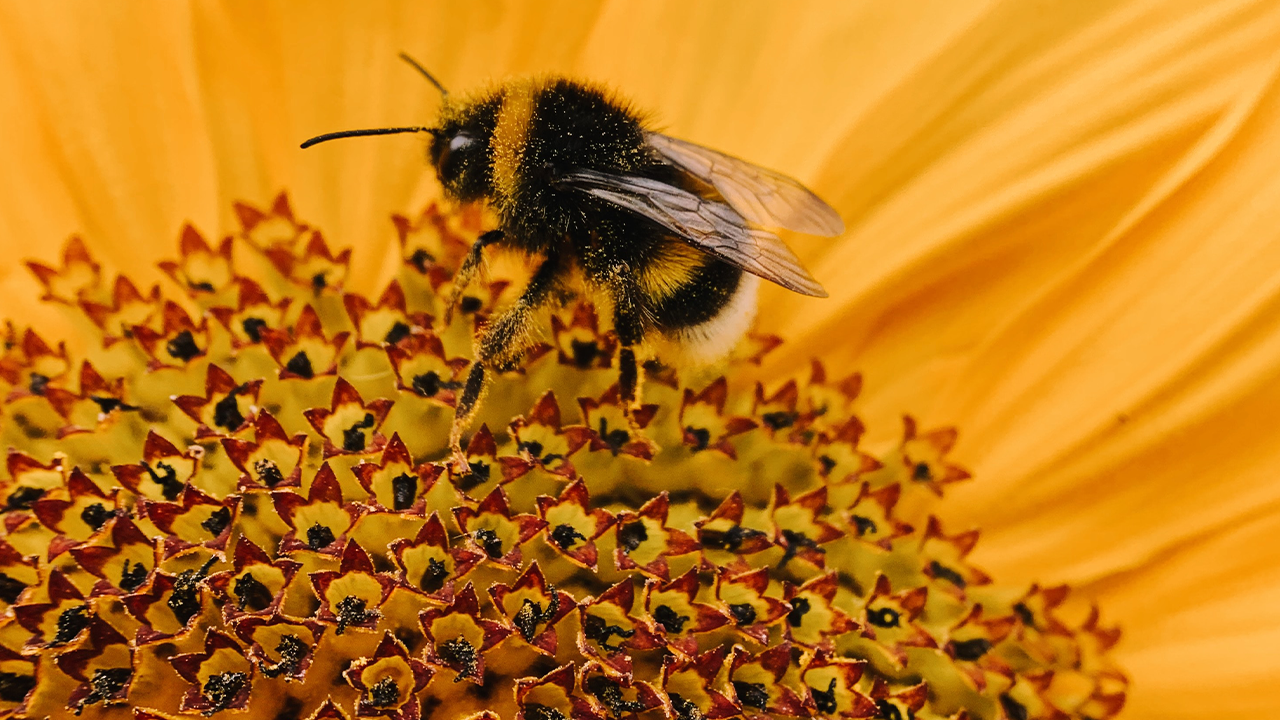
19, May 2023
The Brilliance of Bees
It’s World Bee Day, and there’s a very good reason why these little creatures get their own date on the international calendar. They might often be ignored or even batted away, but bees are crucial to our future – and way more intelligent than you might think. Sadly, though, bees are at serious risk. Here’s why they’re so vital, so wonderful – and what you can do to help them out.
WHY ARE BEES SO IMPORTANT?
Bees are responsible for a lot more food than honey. They pollinate 70% of the crops that feed 90% of the world. There are other types of pollinators, such as butterflies, beetles and even bats, but no other animal has quite the pollinating precision or clout of the bee.
Without bees, a huge majority of the plants and trees that provide us, wildlife and livestock with food would cease to exist. If it weren’t for bees, UK farmers would need to spend £1.8 billion a year pollinating crops.
COUNTING, DANCING AND FOOTBALL-PLAYING BEES
Bees are incredibly clever and sophisticated. We recently shared an amazing video of a red mason repurposing a snail shell as a nest, and building a tepee to hide it.
Aside from being accomplished architects, some bees have developed their own form of communication – using dance. The ‘waggle dance’ is performed by worker honeybees upon returning to the hive. As their hive-mates watch, the dancing bee performs a series of moves that alert others to potential dangers or locations rich in flowers. Astonishingly, this choreography also teaches the other workers what direction the threat or resource is in, and precisely how far away it is. You can see the dance in action – and hear Sir David Attenborough explaining how it works here.
WHY ARE BEES IN DANGER?
Bees are under threat because of a combination of factors: habitat loss, climate change, parasites and pesticides. In the UK alone, we’ve already lost 13 species of bee, 35 others are currently at risk of extinction and many others worldwide are facing the same fate. Since 1945, we have lost a shocking 97% of wildflower meadows in the UK. This, combined with intensive farming and other threats, is why bees are at such urgent risk.
HOW CAN YOU HELP BEES?
There are so many things you can do to help bees. Growing bee-friendly flowers is a great place to start. Even if you have very limited outdoor space, a window box, balcony or hanging basket could become a buffet for bees. In a bigger garden, you could have fun building a bee hotel. You can also help revive tired bees with sugar water – and can even buy specially-made kits for this purpose. You can find out more about how to help save the bees here.
Next time you see a bee, take a moment to appreciate just how fascinating these invertebrates are – and how we owe it to them to save them.

